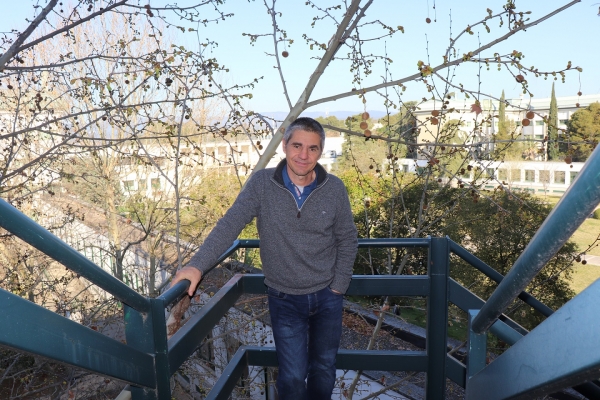The purification of water for its subsequent reuse is an essential aspect of the natural water cycle, and one of the key strategies to avert the scarcity of this fundamental asset sustaining life on Earth. According to the United Nations, the lack of this resource will affect seven billion people in 2050, by which demand will have grown by 30%.
Due to the growing production of food and the lack of rainfall, wastewater is no longer seen as something to be simply disposed of, but rather as a resource. Reclaimed water can be reused for different purposes, such as agriculture, thus alleviating the pressure it places on freshwater sources due, mainly, to irrigation systems.
Improving the strategies for the reuse of reclaimed water in agriculture is the main objective of the Suwanu Europe project, an effort that has recently got underway and in which the University of Córdoba participates through its Department of Economics, Sociology and Agrarian Policy.
"The objective is to come up with a governance model to improve the management and use of this kind of water", says Julio Berbel, Professor of Agricultural Economics and project head at the UCO. Reclaimed water can be used safely for agricultural production, but doing so requires the careful management of health risks, proper treatment, and competent intervention by the authorities.
In this regard, the research project will produce a guide to facilitate decision-making, and will strive to generate an effective knowledge transfer network. To this end, success stories, like those of Israel and Cyprus, will be analysed, as in these countries practically all their water is reused, and eight European regions will be analysed to quantify how much water is being reused, and how. The aim, Berbel explains, is to analyse all the factors involved and "detect administrative, social and economic barriers" that may influence the process involved in reusing reclaimed water for agricultural purposes.
Spain is a European standout in terms of the volume of water it reuses, but, according to some reports, it could still triple this amount in some areas. The European Parliament, however, has recently approved a directive imposing more stringent requirements governing the use of reclaimed water in agriculture, and that includes more restrictions on aspects related to microbial content.
"We have to provide the population with guarantees that reclaimed, purified water used to irrigate crops, is not contaminated," explains Berbel. This type of water contains organic contaminants from faecal matter, and some chemical pollutants from cosmetic products. "Although 99% is eliminated by sewage treatment plants, we have to guarantee that it never affects crops, as this would entail a health risk, and millions in economic losses".
The reuse of water under safe conditions is vital to mitigating its scarcity, and accords with the Circular Economy paradigm promoted by the European Union, based on salvaging and reusing every possible resource. Therefore, improving strategies for the management of this assetis fundamental to fight the battle against water shortages, a problem threatening the very sustainability of the planet and the living beings that inhabit it.


